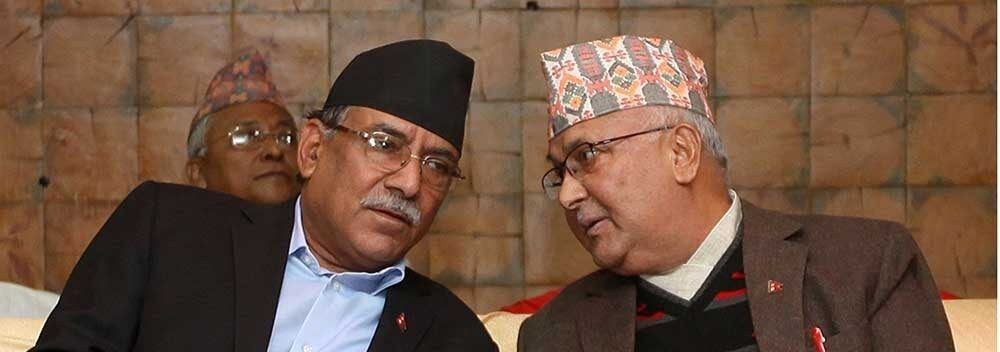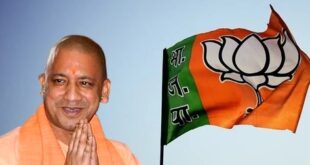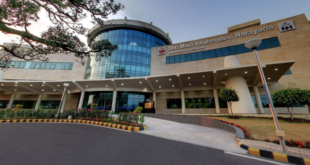 Dr. Utkarsh Sinha
Dr. Utkarsh Sinha
Nepal’s politics is once again seeing a coalition of old faces and tired slogans. Recent political turmoil and the quest for power have brought together leaders who were once seen as promising for the youth, but now seem to have lost their relevance and credibility. Yet, the relentless desire to seize and maintain power has united these “veteran warriors” once more. But the pressing question is: Will Nepal’s youth, who advocate change and new thinking, trust this old leftist front again? Will this alliance be able to move the country toward progress, or will it simply be another unsuccessful attempt to hold onto power? Most importantly, how have the failures of these old leaders created space for unexpected figures such as Durga Prasai and Balen Shah to emerge on the political stage?
Nepal has witnessed major changes in the past decades—political instability, the Maoist insurgency, the abolition of monarchy, and the rise of a new republic. At every major turn, certain names stood out—Pushpa Kamal Dahal ‘Prachanda’, K.P. Sharma Oli, Madhav Kumar Nepal, and Netra Bikram Chand ‘Biplav’. There was a time when these leaders enjoyed strong public support both inside and outside their parties. Prachanda led a Maoist uprising that shook the establishment. Oli sold dreams of nationalism and development. Biplav initiated a new revolutionary wave that attracted youth frustrated with the existing order.
Today, however, things have changed. The aspirations of Nepali youth have shifted. They are no longer swayed by simple “isms” and calls for “revolution”. They want tangible results: jobs, education, health services, corruption-free governance, and economic stability. Unfortunately, under recent years of rule by these old leaders, these hopes have not been fulfilled. Frequent government collapses, internal party infighting, and the neglect of national interest for personal ambition have all damaged these leaders’ credibility.
For example, Prachanda and Oli, who once claimed to chart a new direction via the Maoist movement, are now mostly seen fighting for power and forming tactical alliances. Their governments have failed to provide stable governance. This game of mergers and splits confuses and disappoints the public. The younger generation, influenced by social media and global ideas, sees leaders who change principles only for personal gain. To them, these leaders now symbolize the politics of the past, not the future.

Leaders like Madhav Kumar Nepal, active for decades, are now struggling both in and outside their parties. Their effectiveness is weakened by internal splits and discord.
Regarding Netra Bikram Chand ‘Biplav,’ there was a time his “revolutionary” attitude attracted disillusioned youth. He talked about uprooting corrupt systems and establishing people’s rule. His group even tried running a parallel underground government for a while. But after a peace agreement and a return to mainstream politics, his party’s influence faded. Youth expecting a tough revolution now see Biplav “settling down.” The movement has slowed, and grassroots strength is not what it once was. Many youths feel Biplav, too, has ended up following the old leaders’ path, placing politics of power above revolutionary ideals.
These leaders’ failures have created a vacuum for alternative leadership:
The incapacity, infighting, and inability to fulfill public aspirations have created a major vacuum in Nepali politics. This vacuum has allowed new faces such as monarchy-advocate Durga Prasai and US-influenced Balen Shah to thrive.
Durga Prasai, once known as a revolutionary, now champions the restoration of monarchy. He hopes that people dissatisfied with the current republican system, especially those who recall the stability and order of the monarchy era, will see him as an alternative. Although this attempt may seem regressive, it proves that when mainstream leaders lose credibility, people turn to previously marginalized or forgotten options. Prasai’s activism is directly a result of the old leftist leaders’ failure, who had promised a stable and prosperous republic.
Also Read : Nepal’s Youth Revolt: Can Ram Kumari Jhakri Break the Old Guard?
Also Read : India-Taliban Relations: The Enigma of Engagement Without Recognition
Meanwhile, Balen Shah, mayor of Kathmandu, represents an entirely new and independent political landscape. His background as an engineer and rapper distinguishes him from traditional politicians. He won the mayoral election without the backing of any major party, with support from youth and social media. He is often described as a leader influenced by America. Balen’s rise symbolizes the profound disappointment of Nepali youth, tired of old promises and now seeking tech-friendly, results-oriented leadership.
In this scenario, as all these “old warriors” regroup for power, it is natural to ask if they can be relevant again. Will Nepal trust them once more?
Perhaps, for a short time, they may succeed in gaining power. Nepali parliamentary politics, with its weak mandates, makes coalitions inevitable, and only the most experienced or strongest parties come to power. For long-term relevance, however, they must fundamentally change their methods, ideas, and, most importantly, their image.
They need to understand that the younger generation will no longer be fooled by empty slogans. They must prove themselves not just as power-hungry, but as genuinely committed to development and public welfare. They must tackle corruption, institute good governance, and create jobs for youth. They need to move beyond internal squabbles and offer a stable government.
If they fail to do this, the new alliance will collapse just like previous ones. Nepali youth are searching for and finding alternatives. If old leaders do not adapt in time, they will remain only relics in Nepal’s political memory, never truly trusted again by the younger generation. This is a warning for all leaders who believe the public’s memory is short and that people can be fooled repeatedly. Nepal is changing, and its youth now await a new dawn, free from old stains and led by new, capable leadership.
 Jubilee Post News & Views
Jubilee Post News & Views




